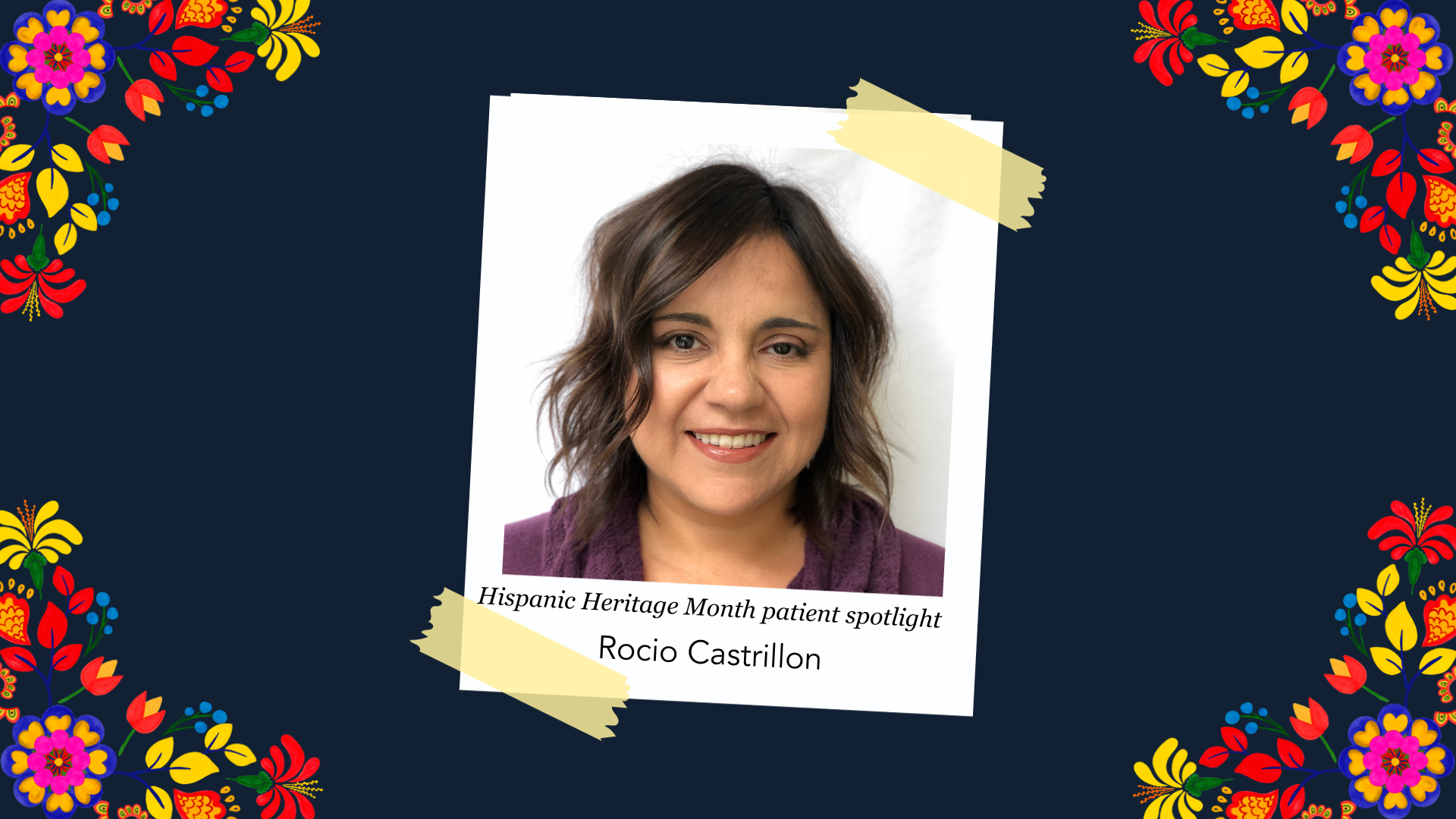Rocio Castrillon was born in Peru and immigrated to the U.S. as a young child. Growing up in Southern California, she grew up initially speaking only Spanish, but quickly learned English, and later learned French, which makes her a proud trilingual speaker. Rocio is a passionate IBD patient advocate and is sharing about her diagnosis and journey with IBD as a member of the Hispanic community.
Tell us about your journey to being diagnosed with inflammatory bowel disease (IBD).
I was diagnosed with Crohn’s disease in 2008 after suffering in silence for five years. Initially, the disease presented with perianal fistulas, with which I was not familiar with, and could not find any credible information about fistulas online.
I was under the care of a colorectal surgeon who prescribed antibiotics to no avail, and then soon after recommended surgery. I underwent two fistulotomies in less than a year with debilitatingly painful recovery periods and continued to suffer with symptoms of unhealed fistulas.
I returned to the same provider, who was dismissive with me and my support network: my parents. After much frustration and tears, the provider recommended a different surgeon who might have more experience with fistulas.
My new health care provider carefully reviewed my medical records and immediately determined I likely had Crohn’s disease. He confirmed it shortly thereafter via biopsies in an exam under anesthesia. After years of suffering silently, I finally had a diagnosis of Crohn’s disease and a new IBD specialized medical care team who I am still with today.
How has your cultural background/ethnicity impacted you throughout your journey with IBD?
Over time, I’ve realized how much my ethnicity as a Hispanic patient played a role in my delayed diagnosis and impacted my support care network. My symptoms and concerns were initially dismissed by my health care provider multiple times over a period of five years.
My parents accompanied me to appointments and surgeries, but they were provided with very little information. Many falsely assumed there would be a lack of comprehension or understanding because of their accents and often, health care provider wouldn’t address them directly. Both of my parents were not only well-educated and fluent in Spanish and English, but obviously accompanied me to help find the best care possible.
After I received my IBD diagnosis and started receiving the appropriate care, I noticed how resources in Spanish were limited. Oftentimes medical terminology and explanations are better understood in the native language, but this was not available to my family. I was often left without a word of reassurance from providers, particularly during medical emergencies.
Living with the unknown contributed to blaming myself for what I was experiencing because of the providers I encountered, in addition to the Hispanic cultural stigma of chronic disease and other misconceptions. It was frustrating to be told to stop eating spicy foods simply when my traditional Peruvian diet did not include any spiciness whatsoever.
Why is patient advocacy important to you?
Oct. 23, 2023 will mark 20 years of living with IBD. In that time, I’ve seen how IBD has impacted every aspect of my life: family, friendships and even my career path. As a Hispanic Crohn’s disease patient, I’ve learned to not only advocate for myself as a patient to my providers but also on behalf of the millions of patients with IBD, particularly as a Hispanic woman.
I’ve advocated privately for years with family and friends, but now I realize the impact of using my voice publicly – both in English and Spanish. During Crohn’s & Colitis Awareness Week in 2022, I launched my IBD advocacy social media presence where I share about my own lived experiences with IBD along with factual information for patients. Now I’ve become even more committed to advocating in both English and Spanish, including as a member of the AGA IBD Patient Influencer education program!
During my time as an AGA IBD Patient Influencer, I learned more about IBD-specific science and the data behind it, and learned about clinical trials and the role in drug development. It was a valuable experience for me and my fellow patient advocates who were able to connect in person at Digestive Disease Week® 2023 in Chicago, IL. It was an honor to be one of the first patient influencers in the AGA educational program!
I remain passionate about IBD advocacy, particularly as a Hispanic Crohn’s disease patient, and I am determined to utilize my voice, knowing that one single patient voice can and will make a difference for change.












